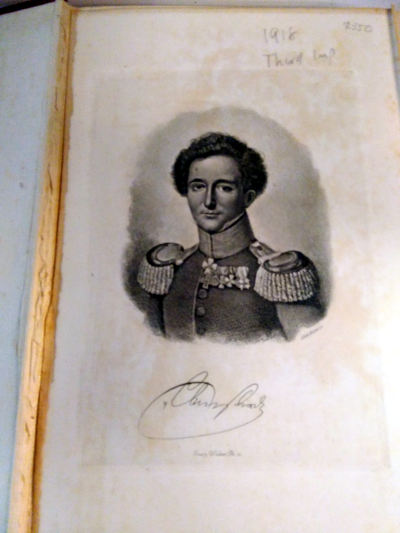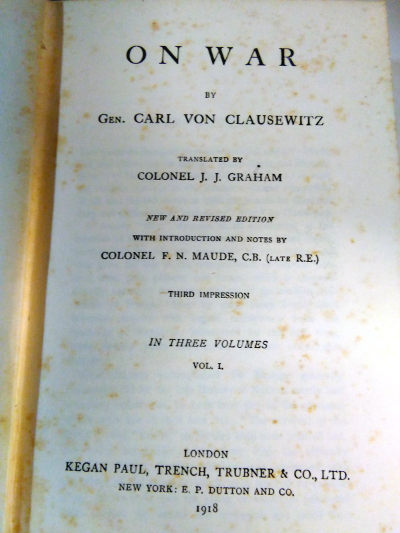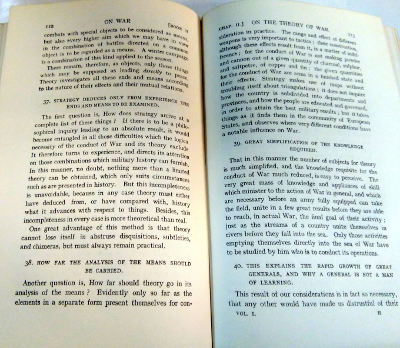About the book (from Wikipedia):
Vom Kriege is a book on war and military strategy by Prussian general Carl von Clausewitz (1780–1831), written mostly after the Napoleonic wars, between 1816 and 1830, and published posthumously by his wife Marie von Brühl in 1832. On War is formed by the first three volumes and represents his theoretical explorations. It is one of the most important treatises on political-military analysis and strategy ever written, and remains both controversial and an influence on strategic thinking.
The book contains a wealth of historical examples used to illustrate its various concepts.
Frederick II of Prussia (the Great) figures prominently for having made very efficient use of the limited forces at his disposal, though Napoleon is perhaps the central figure.
Among many strands of thought, three stand out as essential to Clausewitz’s concept:
War must never be seen as having any purpose in itself, but should be seen as an instrument of Politik – a German word that conflates the meanings of the English words policy and politics: “War is not merely a political act, but also a real political instrument, a continuation of political commerce, a carrying out of the same by other means.”
The military objectives in war that support one’s political objectives fall into two broad types: “war to achieve limited aims” and war to “disarm” the enemy: “to render [him] politically helpless or militarily impotent.”
All else being equal, the course of war will tend to favor the party with the stronger emotional and political motivations, but especially the defender.
Some of the key ideas discussed in On War include (in no particular order of importance):
the dialectical approach to military analysis
the methods of “critical analysis”
the uses and abuses of historical studies
the nature of the balance-of-power mechanism
the relationship between political objectives and military objectives in war
the asymmetrical relationship between attack and defense
the nature of “military genius”
the “fascinating trinity” (Wunderliche Dreifaltigkeit) of war
philosophical distinctions between “absolute or ideal war,” and “real war”
in “real war,” the distinctive poles of a) limited war and b) war to “render the enemy helpless”
“war” belongs fundamentally to the social realm, rather than the realms of art or science
“strategy” belongs primarily to the realm of art
“tactics” belongs primarily to the realm of science
the essential unpredictability of war
the “fog of war”
“friction”
strategic and operational “centers of gravity”
the “culminating point of the offensive”
the “culminating point of victory”





